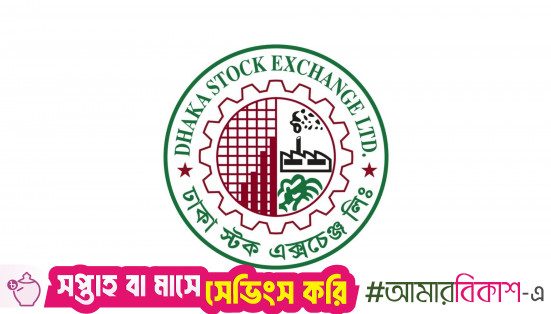Crypto mortgages are becoming a hot topic in Canada, but there’s still a lot of confusion around how they work. For Canadians with significant holdings in Bitcoin, Ethereum, or other digital assets, the idea of using that wealth toward homeownership is appealing.
However, turning crypto into a viable down payment, or leveraging it as collateral, isn’t as simple as it sounds. Between tax implications, lender skepticism, and regulatory requirements, the path from digital wallet to mortgage approval requires careful planning and documentation.
Case studies: when crypto becomes a mortgage down payment
1) Recently, Brian Hogben of Mission 35 Mortgages worked with a client who had already converted cryptocurrency into Canadian dollars. The funds had been sitting in a bank account for over 90 days, typically enough to meet lender documentation standards.
The challenge was finding a lender, and more importantly, an underwriter, who understood crypto. Several major banks refused to proceed, despite the funds being seasoned and in fiat. Progress finally came through Bank of Montreal, which Brian explained has a specialized underwriting team familiar with crypto-related transactions.
After tracing the fund origins and confirming they were compliant with anti-money laundering (AML) standards, BMO approved the mortgage. It was a breakthrough, but it also highlighted how new and misunderstood crypto remains in the mortgage space.
2) A few years ago we ran into the exact same thing with clients purchasing a home in the Greater Toronto Area. They found us only one week before their closing date as their bank had withdrawn their mortgage approval. The reason was because the down payment was largely coming from digital wallets containing their crypto funds.
The only available solution was a private first mortgage, which we placed with Vault Mortgages. Everything went well, in spite of the tight timeline, and the buyers avoided losing their $250,000 deposit.
Interestingly, when they wanted to refinance within six months, they ran into the exact same problem. The banks still wanted to verify their down payment for the original purchase.

What is a crypto mortgage and how does it work?
Crypto mortgages typically fall into one of two categories:
- Crypto-funded mortgage: You sell your crypto, convert it to Canadian dollars, and use those funds as your down payment. This is more common but comes with tax consequences.
- Crypto-backed mortgage: You pledge your crypto as collateral without selling it. This may help you avoid triggering capital gains tax, but requires a lender capable of assessing and managing that risk.
How crypto-collateralized loans work
If you want to access liquidity without selling your crypto, a crypto-backed loan is another option. Here’s how it works:
1. Deposit crypto as collateral
You transfer your crypto to a platform, where it is held in a secure wallet or smart contract. Platforms such as YouHodler and Ledn support this model.
2. Loan-to-value (LTV) ratio
You can typically borrow between 30% and 70% of your crypto’s value. For example, pledging $10,000 worth of Bitcoin may get you a $5,000 loan.
3. Disbursement
Loans are issued in fiat (e.g., CAD, USD) or stablecoins. Most do not require a credit check and can be approved quickly.
4. Repayment and interest
Terms vary. Some platforms offer flexible repayment options; others require fixed schedules. Once the loan and interest are repaid, your crypto is returned.
5. Liquidation risk
If the value of your crypto drops and your LTV exceeds a certain threshold, you may be required to add collateral. Otherwise, your crypto may be liquidated.
6. No taxable event
Since you are borrowing, not selling, there is no capital gains tax event. This can be beneficial from a tax-planning perspective.
A simpler, safer alternative: using crypto ETFs for mortgage planning
For a more straightforward path, consider using crypto ETFs instead of direct crypto holdings. ETFs allow you to gain exposure to digital assets without managing wallets, keys, or exchange accounts.
Held through mainstream brokerages, including in TFSAs and RRSPs, crypto ETFs are easier for lenders to understand and verify, avoiding the friction that often comes with direct crypto assets.
Leading crypto ETFs in Canada
These are some of the top crypto ETFs available to Canadian investors:
- BTCC (Purpose Bitcoin ETF): The first Canadian Bitcoin ETF, with CAD and USD options and a carbon-neutral version
- BTCQ (3iQ CoinShares Bitcoin ETF): Physically-backed BTC, held in cold storage
- FBTC (Fidelity Advantage Bitcoin ETF): Designed for registered accounts
- ETHH and ETHX (Purpose and CI Galaxy Ethereum ETFs): Offer direct ETH exposure, with or without staking
- IBIT (iShares Bitcoin ETF): Managed by BlackRock, a major global asset manager
Several ETFs now include additional exposure to AI stocks or newer crypto assets like Solana, expanding diversification options within this space.
Naturally, our readers should NOT assume this to be investment advice. Ask your licensed financial adviser for their opinion before proceeding please.
Can I use crypto as a down payment?
Yes, but there are strict conditions:
- You must convert the crypto to Canadian dollars
- Maintain a documented paper trail of the sale and deposit
- Be prepared to explain the origin of your funds for AML compliance
Many lenders will still be hesitant. Working with a mortgage professional familiar with these requirements and a lender that understands crypto is essential.
Is it legal and safe in Canada?
Yes, but regulatory guidance is evolving. Lenders must comply with OSFI and FINTRAC standards, which include thorough AML and source-of-funds verification.
OSFI is expected to implement new digital asset rules in 2025, which may influence how Canadian financial institutions handle crypto-collateralized products.
Key risks to consider
- Price volatility: A drop in crypto value can lead to margin calls or liquidation
- Lender restrictions: Many banks still reject crypto-related funds
- Platform risk: Some crypto lenders have gone bankrupt
- No deposit insurance: Crypto held as collateral is not insured by CDIC
- Compliance complexity: Documentation, tax reporting, and regulatory scrutiny can be significant
Who offers crypto-backed loans?
The following platforms offer crypto-backed lending services:
- Ledn (Canada-based)
- APX Lending (Canada-focused)
- Binance
- Coinbase
- Crypto.com
- YouHodler
- SALT Lending
- Aave and Compound (DeFi protocols)
For Canadians, I am told Ledn and APX Lending provide the most relevant regulatory alignment.
How does CRA treat crypto in mortgage scenarios?
Under CRA guidelines, cryptocurrency is treated as a commodity. Selling it to fund a down payment is a taxable event, and any capital gains must be reported.
However, borrowing against your crypto is not a disposition and does not trigger capital gains taxes, at least under current rules. Regardless, thorough documentation is critical.
Our advice
Crypto-backed mortgages and crypto-collateralized loans offer new possibilities, but they’re not ideal for everyone. If you’re a crypto holder considering homeownership in Canada:
- Convert your crypto to Canadian dollars early, and let it season for at least 90 days
- Alternatively, accumulate your crypto wealth in Exchange Traded Funds
- Document everything: sales, transfers, deposits, and sources of funds
- Work with professionals who understand both traditional lending and crypto
- Be ready to meet rigorous compliance and verification requirements
Canada’s mortgage landscape is still catching up to the digital asset world. Planning ahead is key to avoiding delays or declined applications.
Further reading and sources
Visited 1 times, 1 visit(s) today
bitcoin Brian Hogben cryptocurrency mortgage strategies ross taylor
Last modified: August 17, 2025







